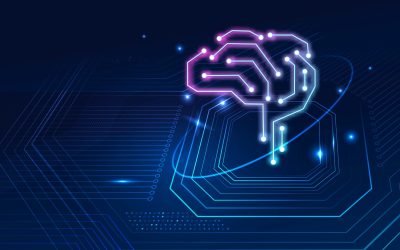Decisions inject Analytics smartness into Processes, making the processes smarter.
Now that we have automated most routine processing using some programming logic and some basic rules, the next competitive frontier is making these processes adapt dynamically to changing conditions and unforeseen situations – and learning from each such situation. Processes with such sophisticated dynamic behavior are smart processes.
Smart behavior cannot be programmed into the processes without causing unmanageable complexity and catastrophic brittleness. In any case, such ‘programmed’ processes cannot ‘learn’ by themselves. Additional knowledge has to be physically programmed into the process.
So instead of trying to make the process smarter, the focus should be on making the embedded decision smarter – through automation using decision management technologies available today.
Smart Processes are really Smart Decisions
The behavior of each process is guided by a decision-making logic that in turn utilizes information and knowledge from the environment. Since better and more information and knowledge makes this (embedded) decision-making logic smarter, it follows that a smart process is really a smart decision.
On the other hand, when is a process dumb? The decision-making logic in this non-smart process is designed to respond to a small variety of environmental scenarios – and cannot be updated rapidly for agile adjustments to changing situations. A dumb process will essentially become ineffective outside it’s designed parameters.
In contrast, the smart decision in a smart process drives a dynamic behavior to respond to a changing environment – not based on explicit scenarios programmed into its memory – but based on heuristic rules and probabilities injected into the decision at run time.
Analytics are a form of Knowledge for Smarter Decisions
Analytics – in the form of predictive models, scores, equations and algorithms – are a form of knowledge that can be continuously updated as more and better data is made available. Advanced machine learning techniques will constantly refine patterns discovered within the data so that the decisions become smarter – making the process smarter in turn.
These analytics are most often presented in the form of a Score like a Credit Score or a Customer’s Propensity to Purchase. Sometimes the mathematical equation used to produce these scores is deployed as-is, so that scores can be calculated dynamically instead of storing pre-calculated scores on a batch basis. For example in an online shopping experience, the shopper is presented with discounts or cross-offers dynamically as she clicks through the online product catalog – and these dynamic offers are calculated on the fly based on an embedded Analytic that is receiving real-time data from the shopper’s click-stream.
Analytics required for making a process smarter cannot be designed without first considering the decision that will be made smarter. Decisions describe the purpose of a process, and thereby describe knowledge required to make that decision. This is how Analytics requirements can be laid out crisply in terms of how the process is going to utilize them. Too often, Analytics are developed as stand-alone pieces of insight that are interesting by themselves but do not lend themselves directly to operationalization into existing business processes.
(Real-Time) Analytics are the best Knowledge – Instant Feedback Loop
The key attribute of real time transactions is that they leave a digital signature in the form of data. This data is available the moment the transaction is concluded, and in many instances well before the transaction is actually complete – the shopping phase for example. So, the best way to plug into the stream of reality is to plug into this data stream. If our analytics can be continuously updated with the latest transaction, then our analytics are near ‘real-time’. This is the most current knowledge we have for making decisions.
The computing power and in-memory storage available today do allow most analytics techniques to operate on the stream of real time data – ensuring that the ‘knowledge’ from these analytics is constantly updated and refined. Essentially the machine is learning from every single process-execution, and applying that knowledge to the very next process-execution.
Big Data is the raw material for Analytics
Big (and small) data are generated by internal and third-party processes of all kinds. These data are used to build insights and knowledge in the form of Analytics. Next these Analytics become knowledge inputs for decisions embedded in processes. Better knowledge means smarter decisions, and therefore smarter processes. Thus Big Data makes processes smarter when piped through analytics – that have in turn been designed for formally defined decisions. For example in a weather related crisis, a shipping company can pick the best transportation choice by crunching geo-tagged social media streams, on-board vehicle diagnostics and geo-positioning relay signals and internal unstructured reports. This layer of additional knowledge on top of the existing routing algorithms will result in a much better, agile decision that drives the smartness into the process.
And to get back to the beginning of the loop, process outputs in the form of data are fed back into the Analytics so that decisions are rapidly adjusted to make use of the most current knowledge.
Decision Modeling to build Smart Processes
Since building a smart process means building a smart decision, it follows that to improve the embedded decision, the decision should have been described explicitly.
Describing a decision formally through decision modeling includes specifying the data (Big Data) and the knowledge (Analytics) required for making that decision. Thus decision modeling helps pick the right data from the immense variety of Big Data available; and at the same time the decision requirements diagram outlines the Analytics that is required for making that decision. The Decision Model and Notation (DMN) standard is used for formal decision modeling and is now becoming of increasing interest to organizations looking to become smarter.
Bottom-line – Consider Decisions First if you want to make Processes Smarter!

















